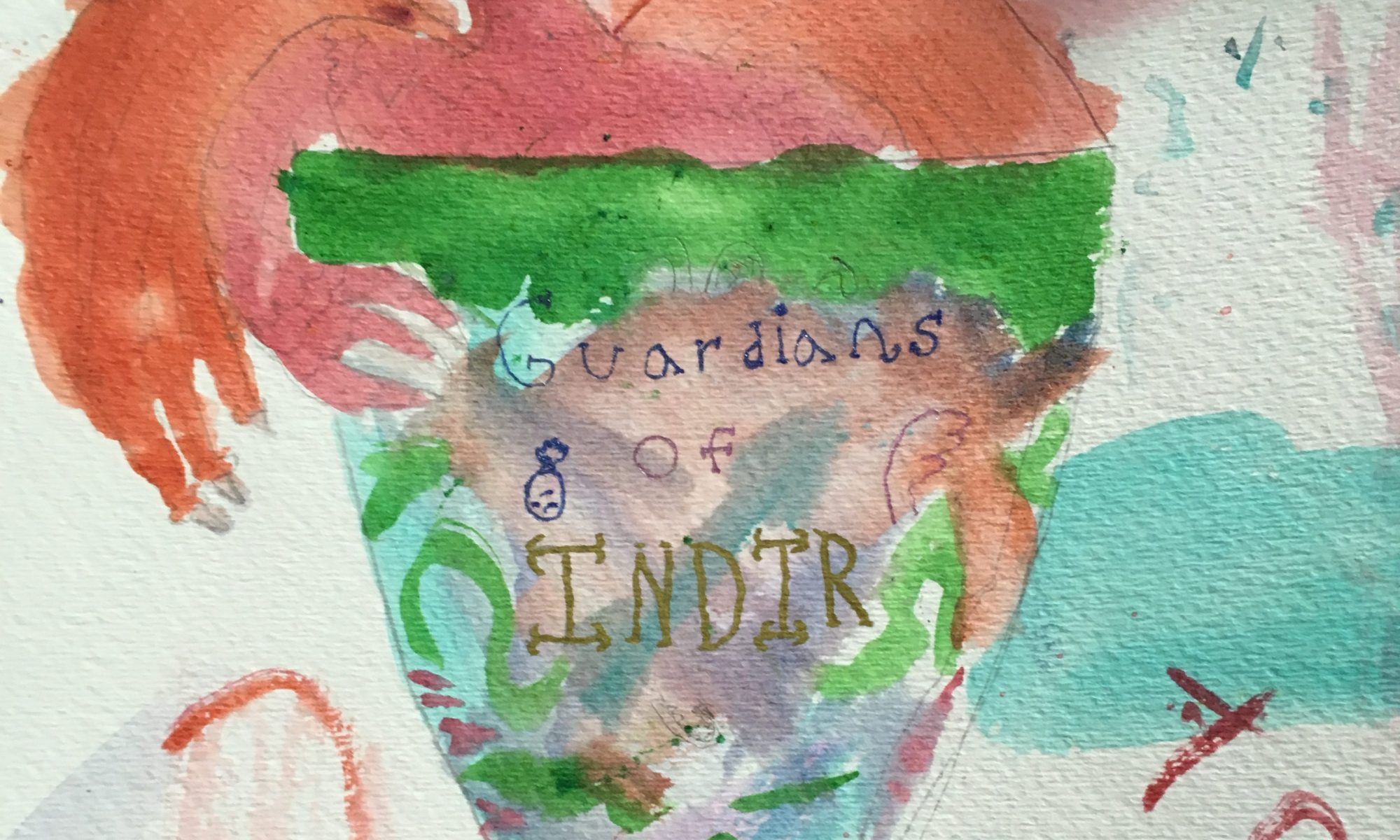Having completed our posting of the All Souls Night adventure, with this episode we go back in time to the D&D 5e Guardians of Indir campaign…
…but when we started recording this session (session 10) in June of 2018, it had been several weeks since we’d played D&D together. In the interim we’d played a session in an entirely different RPG – P.L.U.S. – that also used concepts from the classic 90s superheroes setting/RPG, The Taint. We still hope to publish material from that game in future episodes. But when we came back, we had to get our heads back into this campaign.
That was particularly a challenge for the DM, Harold, who (as we’ve described previously) was trying to run the Indir game completely improvised. So rather than jumping right back into the party confronting the elves in the tower, the first part of the session – this episode, really – consists of a lot of side conversations and digressions as the DM asks pointed questions about little character details to get both himself and the players back into the game, particularly since the PCs have each completed their training and advanced to 3rd level.
It may seem aimless and rambling at first, but each of the characters is developed a bit more during this episode. Well, maybe it never stops seeming aimless and rambling.
Klyde owes a debt to his tribe, so a quarter of his earnings he sends back to the clan. He once tried to pass on some counterfeit goods to his trainer, but failed to fool him. He’s trained a fuzzy little shuvuuia named “Scrap Heap” as his animal companion.
One of the many times Vhisuna got them into trouble and her brother Keats got them out of it, the repercussions forced their shared family to move yet again.
Earlier in his life, Squeak spent a lot of time in the Underdark. A small Indiran scouting party came down and, during their patrol, broke up a fight between different factions underground. Squeak decided that this was his chance to escape the strife in the Underdark, and he imitated one of the soldiers and marched back out with them.
Kantu is a red-shouldered aarakocra. He spent most of his life in Sometown-in-the-mountains before coming down to Indir for the trees. Kantu now has an animal companion, Muffin the boar.
“What does Muffin look like?“
In Balasar’s village, they played a sport like basketball using rabbit skulls instead of a ball. He found Maval Bersk, the ancient sentient construct. Balasar was drawn to Yugondai when his village was being destroyed by a monster and a pigeon descended from the sky bearing him a warhammer to defend his home. The dragonborn forces of Indir came to the village afterward, and Balasar signed up to the military, bringing Maval Bersk along with him.
“When Balasar sees a door, he becomes a bit…unhinged…”

